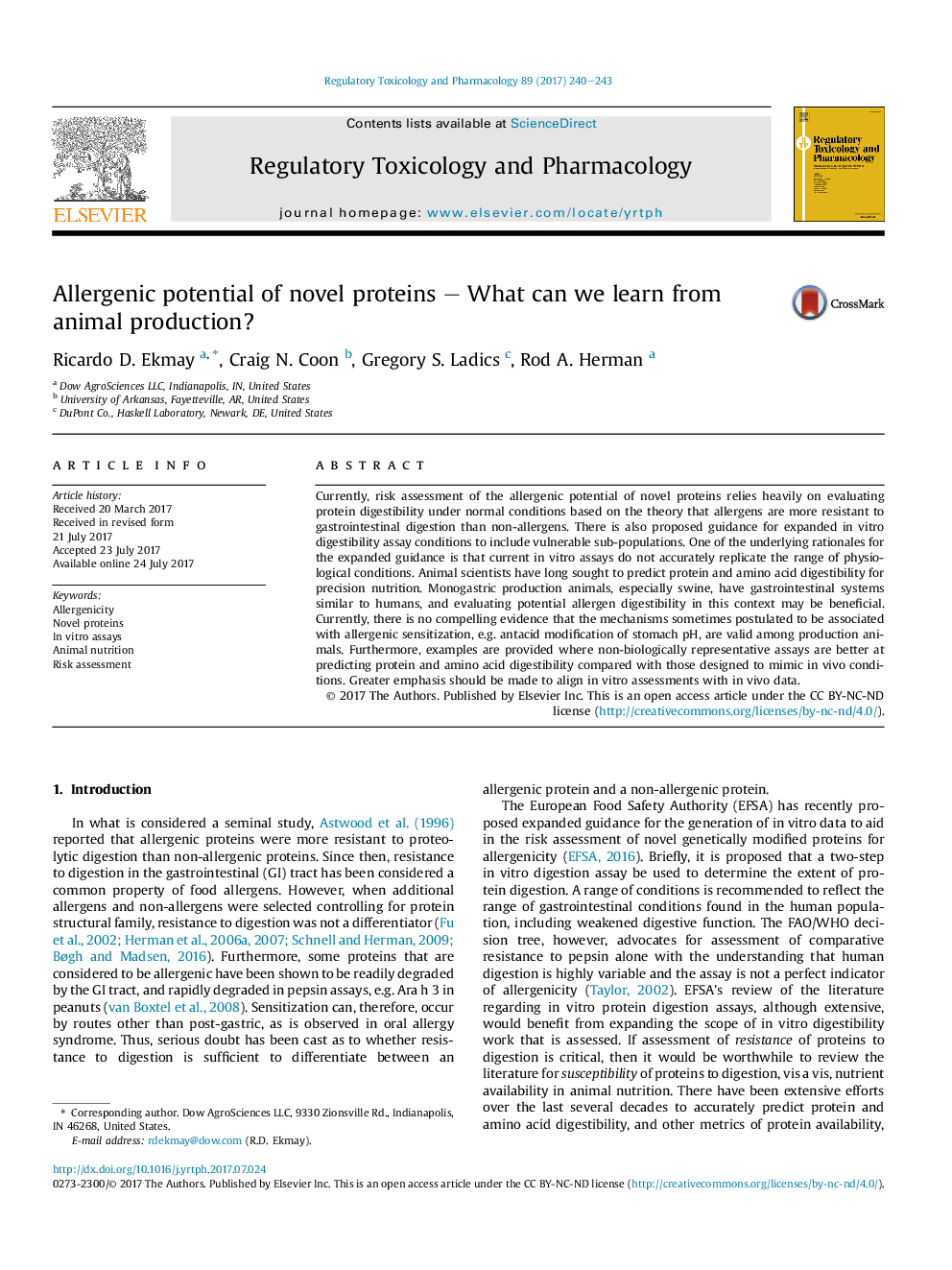| Article ID | Journal | Published Year | Pages | File Type |
|---|---|---|---|---|
| 5561213 | Regulatory Toxicology and Pharmacology | 2017 | 4 Pages |
â¢Risk assessment of allergenicity of novel proteins relies on in vitro digestibility.â¢It is questioned whether in vitro digestibility can distinguish allergenic proteins.â¢Proposed pathways to sensitization are not supported by production animal data.â¢Physiologically-based assays may not be better at predicting in vivo digestibility.
Currently, risk assessment of the allergenic potential of novel proteins relies heavily on evaluating protein digestibility under normal conditions based on the theory that allergens are more resistant to gastrointestinal digestion than non-allergens. There is also proposed guidance for expanded in vitro digestibility assay conditions to include vulnerable sub-populations. One of the underlying rationales for the expanded guidance is that current in vitro assays do not accurately replicate the range of physiological conditions. Animal scientists have long sought to predict protein and amino acid digestibility for precision nutrition. Monogastric production animals, especially swine, have gastrointestinal systems similar to humans, and evaluating potential allergen digestibility in this context may be beneficial. Currently, there is no compelling evidence that the mechanisms sometimes postulated to be associated with allergenic sensitization, e.g. antacid modification of stomach pH, are valid among production animals. Furthermore, examples are provided where non-biologically representative assays are better at predicting protein and amino acid digestibility compared with those designed to mimic in vivo conditions. Greater emphasis should be made to align in vitro assessments with in vivo data.
